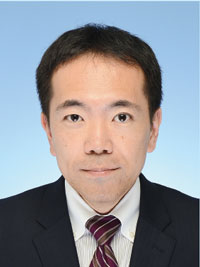Diplomatic Bluebook 2015
Chapter 4
Japan’s Diplomacy Open to the Public
4.Entry into Force of the Convention on the Civil Aspects of International Child Abduction (the Hague Convention) and its Implementation
The Hague Convention is designed to ensure immediate return of a child who has been wrongfully removed from one contracting state to another. It is based on the idea that the custody (parental authority) of a child, whose parents’ international marriage was failed, should be decided in the state in which the child habitually resides. Also, in order to ensure the opportunity for trans-boundary parent-child access, the Hague Convention prescribes that Contracting States should cooperate for realization of parent-child access.

With an increase in the number of cross-border exchanges and international marriage and divorce, the Government of Japan signed and deposited the Instrument of Acceptance of the Hague Convention on January 24, 2014. Following this, the Hague Convention came into force in Japan on April 1, 2014, and, at the same time, the Act for Implementation of the Convention on the Civil Aspects of International Child Abduction was enforced.
A governmental agency designated as the Central Authority provides assistance to fulfill the obligations under the Hague Convention. In Japan, MOFA assumes the role of the Central Authority for communications/cooperation with foreign Central Authorities to implement the Convention, and for assistances provided to the parties including locating whereabouts of the child and arranging mediation services towards amicable solutions. Dealing with cases under the Hague Convention requires accurate understanding of not only the Convention but also domestic family laws and international private law. Also, some of the parties involved in under the Hague Convention are victims of domestic violence or child abuse, which requires response with specialist expertise. Therefore, MOFA employs a wide range of specialists in dealing with cases, including legal specialists, such as lawyers, specialists in supporting victims of domestic violence and specialists in child psychology.
In the nine months from the entry into force of the Convention to end-December, MOFA received a total of 93 applications: 29 applications for assistance in return of the child and 64 applications for assistance in access to the child.
As a result of the entry into force of the Hague Convention, children are confirmed to have returned to Japan from another country in five cases and to another country from Japan in two cases (as of the end of 2014). In three cases for which MOFA provided assistance, access to the child was realized (including communications via video phone). There was a case of trans-border parent-child access in which a child visited the father living overseas during a long-term school vacation.
After the Hague Convention took effect in Japan, the Ministry of Foreign Affairs received its first request for assistance in the return of a child under the Convention. I was fortunately involved in this case as the representative attorney for the mother, and will now report briefly on the background and future challenges of the case.
In this case, the Japanese mother brought two children from country A back to Japan in March 2014, and did not return to country A after that. The father, who had been left behind in country A, submitted an application for assistance, and the Ministry of Foreign Affairs opened the case for assistance. Although the father who had been left behind wished to resolve the matter through settlement rather than court proceedings, direct discussion between the two parties made little headway. As such, the Ministry of Foreign Affairs decided to commission mediation at an ADR (Alternative Dispute Resolution) institution, the Dispute Resolution Center of Tokyo Bar Association. Under the direction of the two mediators (a lawyer, and a clinical psychologist / researcher), sessions were held on four appointed dates, and the parties ultimately arrived at an agreement that the children and the mother return to country A.
In ADR, constructive discussions were conducted on issues such as whether it was more beneficial for the children to attend school in Japan or in country A, and how the access of both parents to the children could be secured. However, due to the barriers posed by differences in values and cultures of the two parents with regard to raising children, and differences in the educational systems of the two countries as well as time constraints of mediation, two parties failed to reach a final conclusion that they were both satisfied with. For such reason, the mother decided to bring the children back to country A, in order for the two parents to continue with a settlement in country A.
 Toshiteru Shibaike, Attorney
Toshiteru Shibaike, Attorney
However, as court orders that were disadvantageous to the mother had been issued in country A, she faced the risk of arrest there. For this reason, the Ministry of Foreign Affairs requested confirmation from the Central Authority of country A that the mother would not be arrested, and succeeded in achieving the safe return of the children and the mother to country A.
In Japan, procedures under the Hague Convention are characterized with a wide range of options available for resolution of the problem. Although application under the Convention has only begun in Japan, I hope that we will be able to build up good practices and become a model for other countries in the future, not only in court proceedings, but also in other mediation cases conducted with the assistance of the Central Authority.

